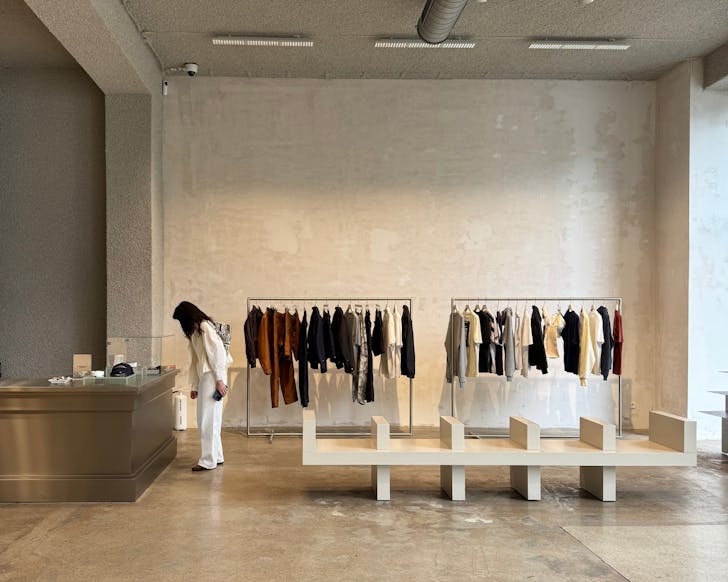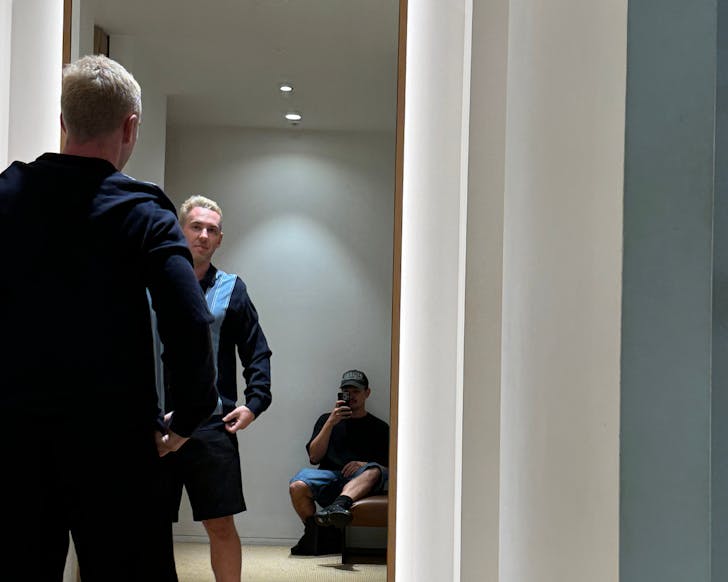It’s Time We Expected More From The Brands We Love—Here’s Why
Welcome to About Face, a feature series where, together with L'Oréal Groupe, we're shining a light on values-led shopping and consumption, with transparency, accountability and inclusion front of mind.
There was a time when consumers didn’t know much at all about brands, beyond the messaging they plastered on their products and parroted in their adverts. There wasn’t an expectation that brands have core values and a clear ethos—and for the few brands that did claim to be values-led, there was certainly no one wondering whether their values extended to the people who worked for them and made their products.
But what we expected from brands started changing pretty rapidly in the 2010s. Social media created a two-way dialogue between consumers and brands. We were no longer just being passively marketed to; we could ask questions, critique, and demand more from the brands we were spending our hard-earned money on. This shift has shaped how brands market themselves, and, unfortunately, has led to a whole lot of greenwashing and ‘fake’ inclusion—when being values-led and progressive sells, brands will inevitably use the right words and marketing to position themselves in this way.
But consumers are wising up. We recently teamed up with L'Oréal Groupe for our About Face research report, which surveyed 1,150 Australians aged 18 to 45. We wanted to understand what shapes brand trust in modern consumers, and what we uncovered shows that people want brands that authentically care about making the world a better place, starting with the way they treat the people who work for them.
We Want Brands To Treat Their Employees Well

A key takeaway from the report is that consumers now see the behind-the-scenes of a brand (how they treat their factory workers and the people in their offices, warehouses, and stores) as a reflection of their true ethos. 58% of people we surveyed believe that companies that care for their employees are more likely to care for their customers, 74% said that workplace culture influences how much they trust a brand, and 91% expect organisations to actively support employee wellbeing.
It makes sense—if you’re peddling kindness but pay people poorly and cultivate a toxic work environment, it all starts to feel pretty hollow. It’s affecting the way people buy, too, with 72% looking into a company’s values, ethics, or workplace culture before deciding to spend their money on them.
Those values include initiatives like L’Oreal Groupe’s Share & Care program. Launched in 2013, it's a continuation of their long tradition of social innovation. It’s a practical way to provide their employees with the best social protection, healthcare and work-life balance, and allows them to cultivate an inclusive and supportive work environment. Set up in all countries L’Oreal operates in, it’s a worldwide set of minimum benefits that go beyond local regulations. Organised around four key pillars—Protection, Health, Balance and Workplace—the program has implemented initiatives like a domestic violence policy which provides shelter and financial and administrative support, and ensures that all new sites the company builds are accessible to people with disabilities.
We Want Inclusion Messaging That’s Genuine, Not Performative

These days, it can feel like inclusion has become a ‘box-ticking’ exercise for brands. Our report backs this sentiment up, showing that 63% of people believe that inclusion is seen by brands as PR, not practice, while 74% believe they can tell when an organisation’s messaging feels genuine. After all, when brands peddle inclusion on social media and in their adverts but don’t have a diversity and inclusion program in place, that carefully crafted image begins to feel pretty transparent.
So how do brands implement these values, beyond embracing diversity in their campaigns and social media posts? With an approach that covers all bases: by recruiting diverse teams and prioritising inclusive management and leadership, partnering with responsible suppliers who share their commitments, accelerating the inclusion of people with disabilities, promoting gender equity, and fostering inclusive environments for LGBTQIA+ people, among a whole host of other initiatives.
You don’t have to look far to see the impact of ‘fake’ inclusion and inauthenticity on brand trust, either. In recent years, popular women’s fashion brands like Djerf Avenue and Outdoor Voices—both brands that peddled inclusivity in their campaigns and on social media—have come under fire for the disconnect between the narrative they had crafted about their brands and the reality of working for them. In both cases, former employees criticised the brands’ toxic workplaces and alleged that bullying was commonplace.
While there’s no hard data to show how sales were impacted post their respective scandals, Outdoor Voices nearly went bankrupt in 2024 following a period of internal issues and financial mismanagement, while many former Djerf Avenue customers boycotted the brand after the scandal broke, and sentiment towards them online remains negative, showing that their image of inclusivity and authenticity has been severely damaged.
It’s clear that great products are no longer enough for consumers; if the culture behind a brand is exploitative or fake-inclusive, it’s a deal breaker. More than ever, we want brands’ messaging and values to align not only with our own, but to be practised in every facet of their business, from the shop floor to their HQ. By choosing to support (or not support) brands based on their values, we’re voting with our wallets, and every dollar we spend is a vote for the kind of future we want. It’s time brands took notice.
Keen to support brands that align with your values? Read more on L'Oréal Groupe, where 16% of employees are over 50 years of age, and 53% of leading positions were held by women in 2023.
Read more about how we shop our values at Urban List here.
Editor’s note: This article is sponsored by L'Oréal Groupe and proudly endorsed by The Urban List. To find out more about who we work with and why read our editorial policy here.
Image credit: Urban List
.png?format=auto,compress&w=728 728w)